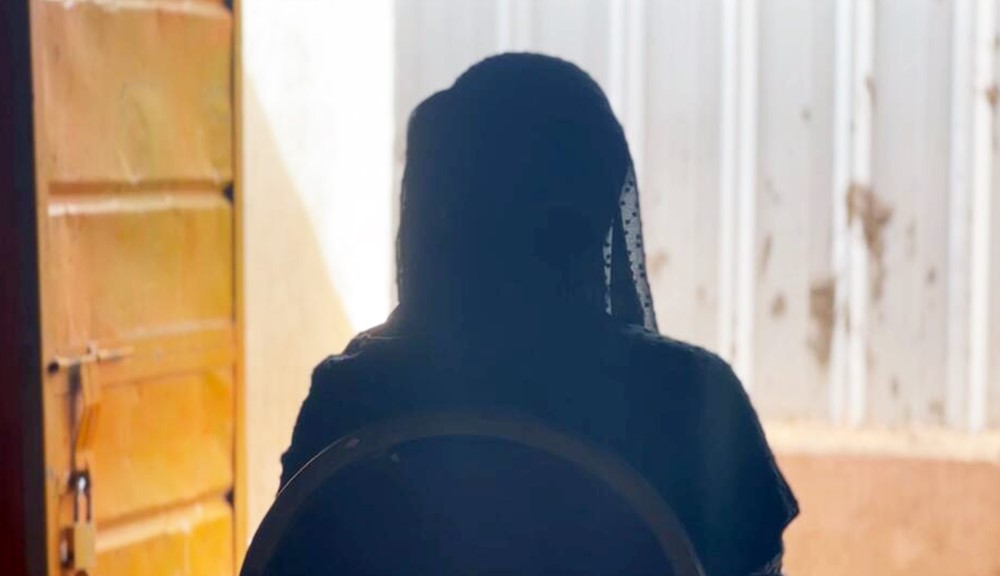
Widows of East Nile: Women inside the ``Rooms`` of Suffering
Moatinoon - East Nile
The death of a husband not only places a woman in an ambiguous social situation, but also leaves the majority of "widows" confined to rooms, facing life alone, unprepared for this sudden, devastating battle. The new burdens multiply their responsibilities, while society devalues them in a humiliating manner, forcing them to live permanently in the shadows, far from the attention of family and the state.
"Asia" is a young woman in her early twenties, just months away from entering her thirties, the tender years of her life. The simple experience of marriage was not enough to allow her to face these circumstances alone after her husband died, leaving her with three children and three months of rent arrears.
She left the house of sorrow and entered the rooms of suffering. Asya said, "I had to face my new situation realistically. Those who sympathized with me abandoned me, just as luck had abandoned me. I started working as a school worker in the area, but the financial income was meager and did not cover my needs. I left school and worked as a food and tea vendor in the market, putting up with the trivialities of some customers and avoiding, as much as possible, the eyes of the human wolves who were devouring me.
During the war, my suffering increased significantly. I became displaced. My children lost the opportunity for education and stability. No one helped me, whether family or friends. Some charitable men provided us with limited services, which have now ceased. I always wondered, What did I do to make everyone abandon us? I couldnt find a satisfactory answer and had to suspend the question."
Maryam, who lives in the compensation area, was not better off financially. She lives a barren and miserable life, in addition to being viewed by a society that views her as a stigma. Some women in the area send her popular proverbs that convey pessimism at every opportunity.
But Maryam, who holds two titles, "divorced widow," believes she is an unlucky woman. She married a man who provided her with a decent and stable life. However, a year later, her husband died in a traffic accident. She entered a house of grief and went out in search of work to support herself. Being a beautiful woman, she married a second time. Three years later, her second husband became ill and died, leaving her with two children, one of whom died in the first year of the war after suffering from anemia due to hunger and malnutrition.
The widow moved to Wadi Al-Akhdar, where a worker offered her a marriage proposal. She accepted. Finally, she found someone to care for her and ease her burden. However, six months later, she discovered that her husband was unemployed and merely a "shafshaf," a title for thieves that became widespread during the war, granted social legitimacy to the sale of stolen goods.
The dispute between them intensified, and they divorced. She was given the second title, "divorced." This situation prompted her to leave her room and return to her job as a "dalalah" to raise her only child.
Samia, 50, who works temporarily in a grocery store, said that her husband died five years ago, leaving her with seven children. This placed a greater responsibility on her shoulders than she could bear, especially since her husband died poor and had no worldly possessions. All her earnings from her work went toward food and the needs of her young children.
Before the war, she had sought help from the government, but her attempts failed, especially when an official told her, "There are a million widows. We dont have the budget to support this huge number. Go away from me." She was dismissed, and no one stood by her. She left, filled with regret, not because of the officials harsh response, but because of her own bad luck, which had forced her to beg from employees, some citizens, and even relatives who looked down on her, ignoring her social responsibility and duty to the state.
The file of widows in East Nile, Bahri, contains within its forgotten pages a large number of sad and unfortunate stories of women. Despite the recent increase in the number of this segment due to war, disease, lack of medical care, and poverty, there is no official list of their numbers. There are only lists maintained by Islamic and foreign organizations, as well as womens associations whose names encompass various activities, including support for widows.
Before the war, Sudan and Khartoum State did not have a database. However, the National Organization for Widows and Orphans counted approximately 8,393 women who lost their husbands in various circumstances and accidents. This is, of course, a small percentage compared to the number of widows worldwide, estimated at 258 million, a tenth of whom live in abject poverty.
Although 18 days have passed since International Widows Day, which falls on June 23 of each year, the world, preoccupied with wars, has yet to celebrate them.

